Peranakan theatre pioneer, popiah shop owner among winners of Intangible Cultural Heritage Award
Six honoured for making excellent contributions in passing on skills, knowledge in their fields
Sign up now: Get ST's newsletters delivered to your inbox
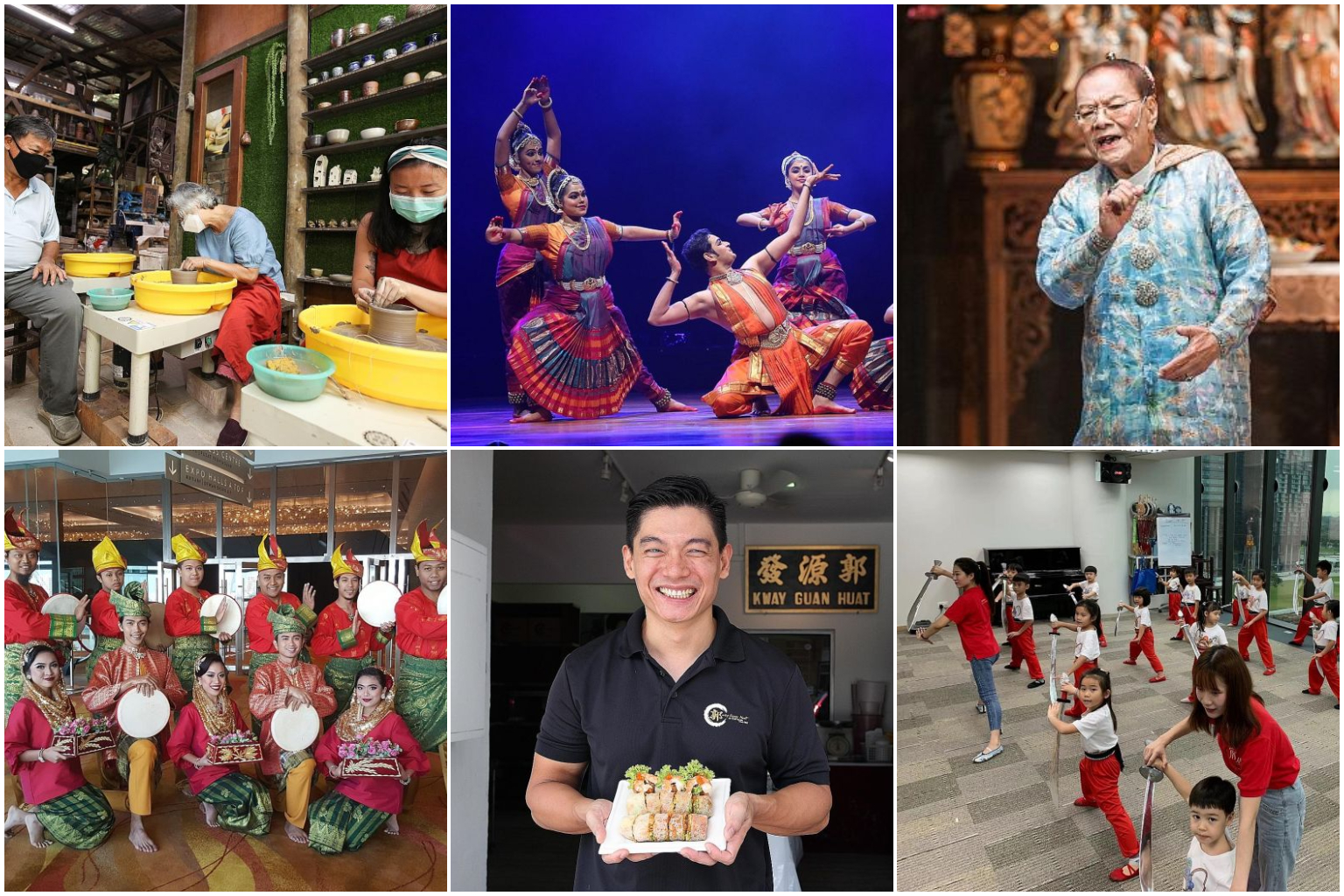
Each of the winners will receive $5,000 in cash and be eligible to apply for a project grant of up to $20,000 to further fund their work.
PHOTOS: LIANHE ZAOBAO, APSARAS ARTS, COURTESY OF GUNONG SAYANG ASSOCIATION, SRI WARISAN SOM SAID PERFORMING ARTS, MINISTRY OF COMMUNICATIONS AND INFORMATION, NAM HWA OPERA
A pioneer of Peranakan theatre and the owner of one of Singapore's oldest popiah shops are among six winners of an inaugural award for promoting intangible forms of cultural heritage.
The winners were announced on Thursday. Each will receive $5,000 in cash and be eligible to apply for a project grant of up to $20,000 to further fund their work.
Launched by the National Heritage Board (NHB) last October, the Stewards of Singapore's Intangible Cultural Heritage Award recognises individuals and groups that have made excellent contributions in preserving and transmitting cultural skills or knowledge in their respective fields.
These groups or persons must each have had at least 10 years of experience in their vocation and be well respected by their community.
Mr Tan Teck Yoke, the current owner of Thow Kwang Industry, said the award recognises the hard work of three generations. His family-run business operates one of the last two dragon kilns in Singapore.
"We have been keeping this alive till now, and it is worth it. We also feel a greater responsibility to spread this cultural heritage to the next generation," said Mr Tan, 65.
Mr Aravinth Kumarasamy, 54, of Apsaras Arts, said the award represents the "sacred responsibility" of nurturing Indian classical dance.
"This is so our next generations can be proud of a living tradition practised among the community and not just a museum show piece."
The award, said Mr Aravinth, is also a much-needed form of positive encouragement at a time when many arts groups are struggling because of the Covid-19 pandemic.
For example, Peranakan theatre veteran G.T. Lye has seen several projects shelved. An international Peranakan convention that was to be held here in November has been postponed.
"I pray hard that my health will allow me to do it next year," said the 81-year-old wayang Peranakan pioneer, who is known for his female impersonations.
Other winners, including Apsaras Arts and Nam Hwa Opera, a prominent Teochew opera company, have seized the opportunity to further digitalise their work.
And the Sri Warisan Som Said Performing Arts group has started using videoconferencing platform Zoom to communicate while practising traditional Malay arts like bangsawan and dikir barat at home.
The pandemic has also provided an opportunity for the different groups to give back to the community in additional ways.
Mr Michael Ker, 44, the third-generation owner of 83-year-old family-run Kway Guan Huat Joo Chiat Popiah, has donated hundreds of rolls of the well-loved local dish to hospitals, as a way of showing his appreciation to front-line workers.
He said he has cousins and nephews in their 20s who have shown an interest in popiah-making.
"I hope I can spur the younger generations to take the unconventional path. But it must come from them, you can't force it. It's not an easy thing to do," he said.
Nam Hwa Opera president Toh Lim Mok, 72, said the importance of preserving and promoting intangible cultural heritage lies in its roots.
"Roots are important for building up a person's character by inculcating values, and if you want to keep these values, then the preservation of art forms is key," he said.
Mr Yeo Kirk Siang, director of heritage research and assessment at NHB, said the organisation looked forward to working with the winners to further raise awareness and participation in their fields.
"Our intangible cultural heritage is integral to our way of life and our multicultural identity as Singaporeans," he said.
Breathing new life into dragon kiln
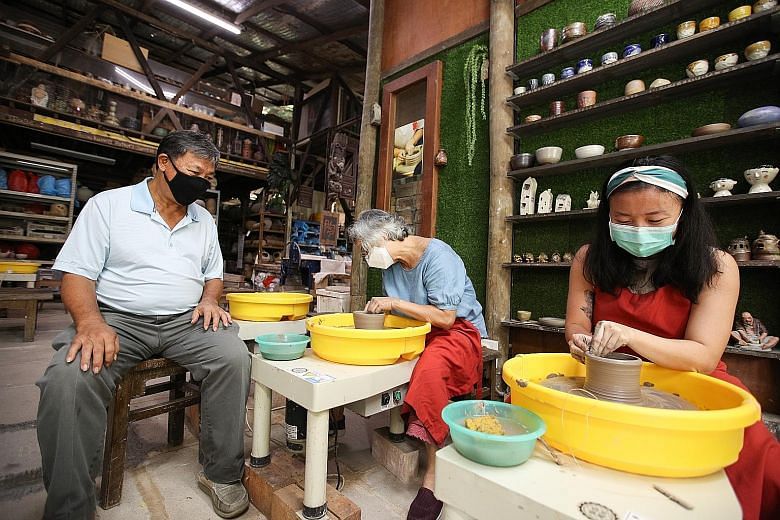
A third-generation family pottery business, Thow Kwang Industry has been trying to engage different audiences to share its craft and explore ways to digitalise.
It conducts programmes at kindergartens, primary and secondary schools, as well as tours of Thow Kwang's famous dragon kiln, said second-generation owner Tan Teck Yoke, 65.
His niece, Ms Stella Tan, 29, has come on board with fresh ideas to market the company's pottery products on social media and at art exhibits and markets.
Putting fresh spin on tradition
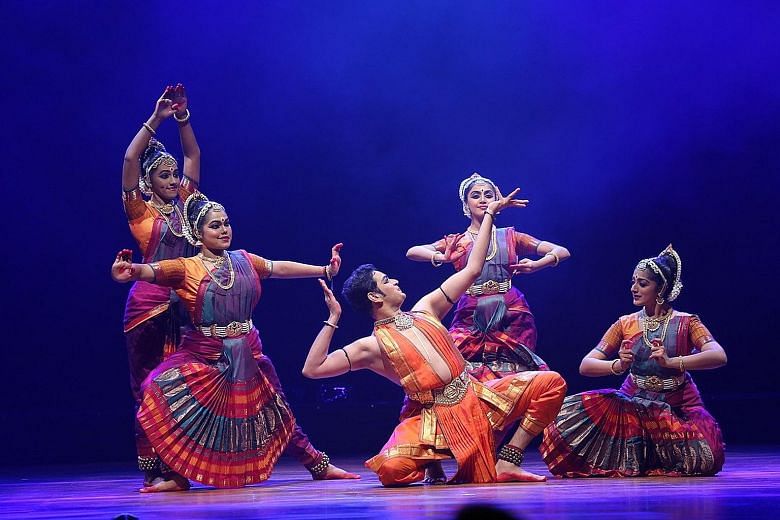
Trying to stay up to date and yet true to its roots, Apsaras Arts has blended strict adherence to Indian classical dance techniques with contemporary storytelling.
Under its current director Aravinth Kumarasamy, a National Arts Council Young Artist award winner, the group has branched into schools and digital technologies to keep itself relevant.
The group was started in 1977 and has two main functions: One, as an Indian dance academy for performers, choreographers and teachers; and the other, as a full-time repertory company.
Fighting for wayang Peranakan
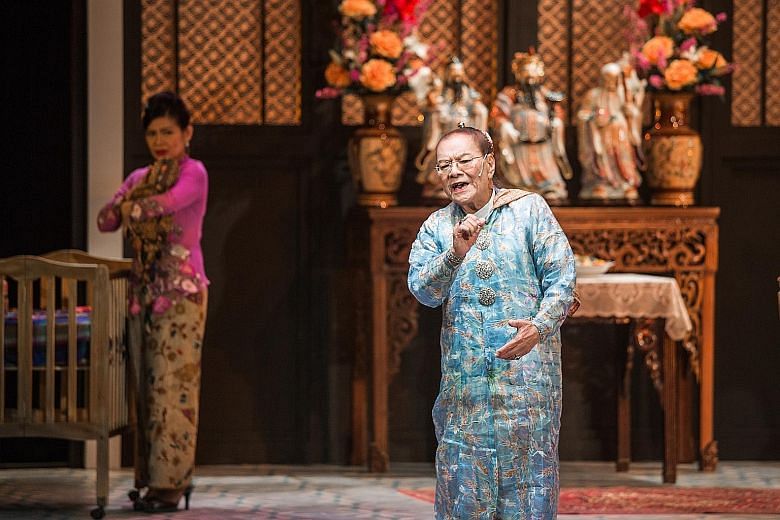
At 81, veteran female impersonator G.T. Lye is still fighting for the art of wayang Peranakan.
The theatre form might have disappeared for good had it not been for Mr Lye, who is credited with reviving it in the 1980s.
His first role was that of a father in Pileh Menantu (Choosing An In-law), a play about a typical Peranakan family, commissioned by the Ministry of Culture in 1984.
Nurturing young enthusiasts
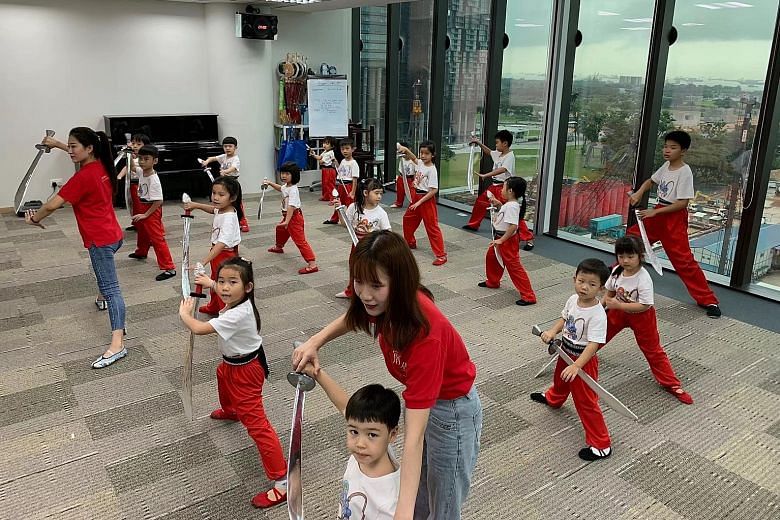
More than just performance, Teochew opera is a conduit for transmitting traditional culture and values, such as filial piety, to the young.
Nam Hwa Opera president Toh Lim Mok, 72, is focusing on efforts to get to the roots of the art form even as the group tries to reach out to the younger generation.
It has set up a research centre to delve into the history of Teochew opera and its development, and collaborated with the National University of Singapore to encourage its students to also do so.
Keeping Malay art forms alive
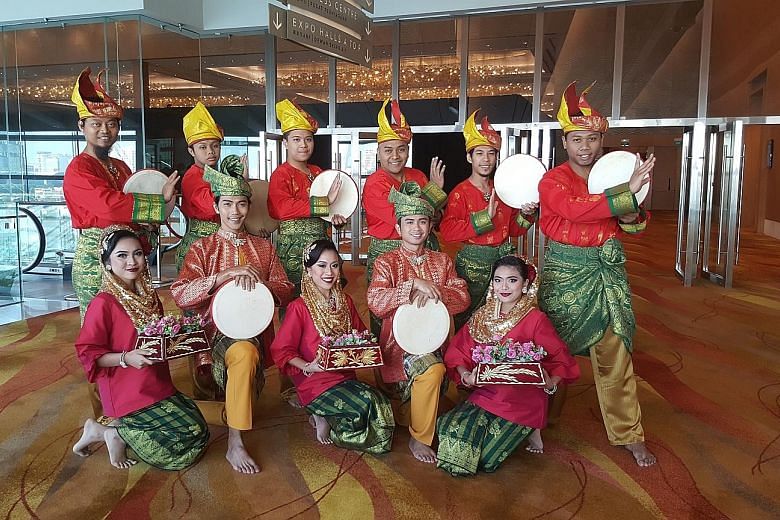
Malay performing arts group Sri Warisan is making heritage "glow", said its founder and Cultural Medallion winner Som Said, 69.
It has taken traditional Malay art forms like wayang kulit (shadow puppet theatre) and dikir barat (a form of choral singing accompanied by percussion) to more than 110 cities in 40 countries, through competitions and performances.
In Singapore, it has conducted 17 arts initiatives - including workshops, music and hands-on programmes - in various schools.
Serving up a taste of Singapore
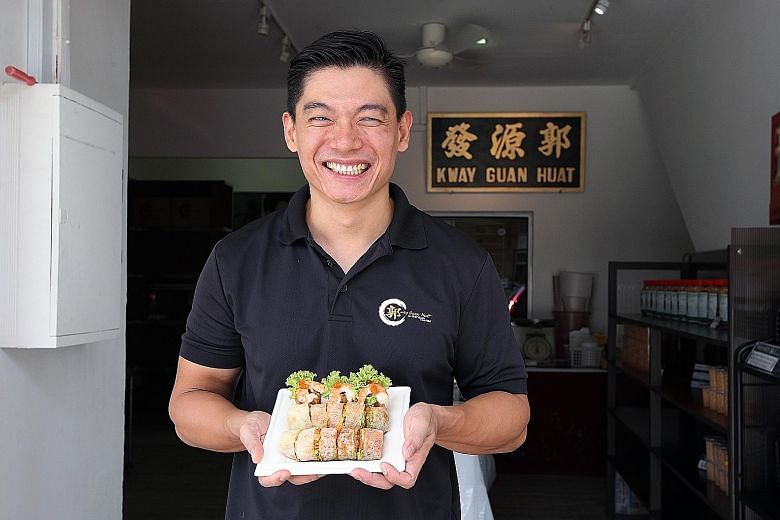
Thanks to Mr Michael Ker, 44, even people living in New York and Copenhagen have tasted a much-loved Singaporean dish: the popiah.
Since he took over from his father about eight years ago, the third-generation owner of Kway Guan Huat Joo Chiat Popiah has found new ways to expand the 83-year-old home-grown brand.
One was by collaborating with the Singapore Tourism Board to bring the dish to festivals promoting Singaporean food around the world.


